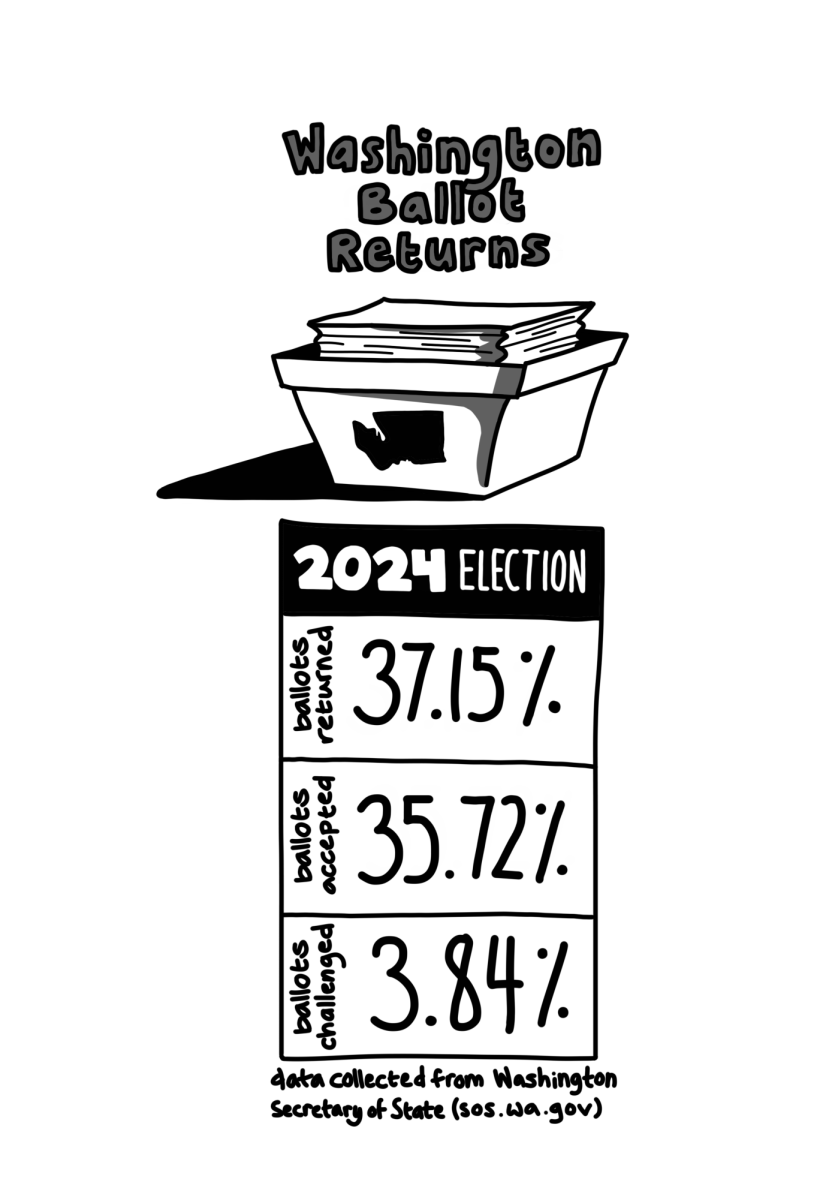In a series of creative Remolinos (“whirlwinds”), students who went on Whitman’s U.S.-Mexico Border Trip this past summer gave a reading of their experiences in a presentation Tuesday, Sept. 25.
The presentation was given as part of the series of events related to the community reading of Luis Urrea’s book “The Devil’s Highway.” The book was also the required summer reading for all first-year students this year.
Trip-leader and Assistant Professor of Politics Aaron Bobrow-Strain spoke of the Border Trip experience as a “whirlwind of intellectual upheaval.” His view of the trip is a combination of experiences and reflection which he hopes will incite action in participants that will lead to further experiences and reflection.
This presentation reflects a first step of action. Participants hope that it will increase awareness on campus about what is happening on the border.
One of the themes that ran through many of the participants’ Remolinos was the idea of the economic hardships in Mexico that are causing an influx of immigrants into the United States.
Ginny Robbins and Jack Mountjoy spoke about the limited rights in the maquiladora factories along the border. Mountjoy recounted the story of one woman who was forced to work an eight hour day without a bathroom break during her pregnancy. She developed a kidney infection, but luckily her baby was born healthy.
“Things we buy at the store have costs far above what we pay [in dollars],” said Robbins.
Mountjoy ended his Remolino with the idea that people, not goods, form the basis of the global economy. His story stressed the limited rights of women who work in the maquilas making parts for toilets. He asked whether 49 cent flush valves should really be valued above people, as they seem to be now.
Jonathan Goldenberg also spoke about the costs of cheap Mexican labor. He addressed the fact that the cheap costs the United States enjoys do not extend to Mexicans. A pack of diapers costs a day’s wage for Mexican maquila workers.
Johanna Allen’s Remolino talked about the creative ways people use to support themselves and their families. But there are limited options and high competition among workers.
“There’s one option that’s always at the tip of the tongue: the trip north,” said Allen.
Goldenberg’s Remolino told the story of Miguel, a young man who made that journey north but was deported to Mexico. He had a job and a life in Tucson, said Goldenberg. “He was my age.… I was allowed to return home. He was not.”
Many of the Remolinos contained powerful emotional undertones rooted in the personal nature of their stories. One participant, however, was very straightforward with her reaction to her experience on the border.
“I’m angry,” said Hannah Sherrard. “Angry that I never knew what was going on at the border. Angry that most people will never find out.”
Julia Leavitt’s Remolino, read by Becky Avila, spoke of the border as a Monopoly board littered with “dead bodies, broken souls and thirsty tongues.” It ended with a call to action for Whitman students. “[It is] time to change the rules of this game…to allow humanity to assist a fellow human.”







